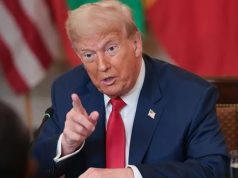C
China and the EU are expected to seize the
opportunity of the ongoing China International Import Expo (CIIE) to advance
the goal of reaching a bilateral investment treaty (BIT) by 2020, amid rising
pressure from protectionism in the global market, corporate representatives and
experts told the Global Times on Tuesday.
During a keynote speech at the opening
ceremony of the second CIIE in Shanghai, Chinese President Xi Jinping said
China will be happy to conclude high-standard free trade agreements with more
countries and speed up negotiations on agreements such as the China-EU
investment pact.
Many companies from EU member states that
attended the first CIIE in 2018 returned this year, and they expect that the
event will produce more tangible outcomes. That expectation has helped drive
them to add investment in the Chinese market, they told the Global Times.
This year’s CIIE is being held from Tuesday to
Sunday.
“After we joined the expo last year, the
number of online searches for our products tripled in the fourth quarter and
sales doubled in the first quarter of 2019,” Cha Sheng, general manager of
VorWerk China, told the Global Times on Tuesday. VorWerk is a Germany-based
household appliances producer.
Cha said that VorWerk has largely benefited
from the CIIE, a global and open platform, since last year, and the firm plans
to increase investment in the Chinese market in the coming years.
“We highly value the Chinese market and
are actively expanding here, in the hope that our high-tech products can serve
China’s institutions and companies,” Giuliano Felten, director of
Italy-based Ferretti Security & Defence, told the Global Times on Tuesday.
European countries have attached importance to
the CIIE as the annual event has brought increased opportunities for them, as
can be seen in the fact that a number of EU leaders are attending the expo this
year, said Sun Yongfu, former director general of the European Department of
China’s Ministry of Commerce (MOFCOM).
Apart from French President Emmanuel Macron, other European leaders including Greek Prime
Minister Kyriakos Mitsotakis and Serbian Prime Minister Ana Brnabic attended
the second CIIE opening ceremony.
A total of 17 European countries will
participate in this year’s event, and other countries including France, Italy,
Greece and the Czech Republic will attend as guest countries of honor.
The CIIE plays a vital role in balancing trade
between China and EU members and that will have a positive effect in advancing
bilateral investment – that is, to accelerate the BIT negotiations, Sun told
the Global Times on Tuesday.
China’s trade with the EU totaled about $682
billion in 2018, with China’s imports standing at $273 billion and exports at
$409 billion, according to data from MOFCOM.
The two sides are conducting the 24th round of
negotiations on the BIT from Tuesday to Friday in Beijing, where they will
discuss issues involving the text of the agreement and strive for positive
progress.
The BIT talks are one of China’s most
important economic and trade negotiations. The talks started in November 2013,
aiming to reach a higher-level agreement covering investment protection and
market access based on agreements signed between China and EU member states,
information released by MOFCOM showed.
Given the efforts of both sides, the last
round of negotiations, which took place in September, “maintained sound
momentum and yielded positive progress,” MOFCOM spokesperson Gao Feng told
a meeting.
So far this year, two sides have conducted
five formal rounds of negotiations.
Experts said that it is urgent for Beijing and
Brussels to accelerate the signing of the BIT to cushion pressure from US trade
protectionism and it is possible that they will reach an agreement by 2020.
Reciprocal opening-up
China is striving to implement its opening-up
to EU countries, which is also a reciprocal requirement, as “the EU market
is expected to be more open to Chinese capital,” Sun noted.
Some uncertainties emerging in the EU market
such as stricter scrutiny of Chinese investment, in advanced technology in
particular, are likely to affect the negotiations, said experts.
Chinese companies in Europe are still facing
challenges, such as limited access in certain key areas due to increasing
scrutiny of foreign investment by the EU; restrictions on the development of
some businesses of Chinese firms due to misunderstandings arising from
political and public opinion, and a low level of participation in EU standard
setting, read a report released by the China Chamber of Commerce to the EU in
October.
To advance the China-EU BIT is the right trend of
the times and it is a pity that some EU countries may lose growth opportunities
due to their short-sighted moves to bar cooperation with China, especially when
it involves cooperation with Chinese companies like Huawei, experts noted.
The EU market needs Chinese investment and there
is great potential for bilateral cooperation, William Zhang, chairman with the
EU-China Municipal Development Commission, told the Global Times on Tuesday.
For instance, China excels in e-commerce, as
convenient online payment tools are widely used in the country, while members
of the EU still depend on credit card or even cash, Zhang said.
“In such cases, they need China … they should
not shut the door for cooperation,” Zhang said.
GLOBAL TIMES










